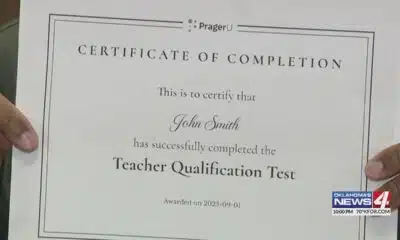(The Center Square) – A pre-sentencing hearing is scheduled Monday for convicted ex-Illinois House Speaker Michael Madigan.
U.S. District Court Judge John Robert Blakey is expected to consider post-trial motions when he meets with prosecutors and defense attorneys Monday afternoon at the Everett McKinley Dirksen U.S. Courthouse in Chicago.
Blakey scheduled a second hearing Tuesday to consider valuation estimates related Madigan’s conviction on ComEd-related charges. The judge asked attorneys to meet and confer over whether evidence outside of the current record might be required.
Madigan, 83, was convicted Feb. 12 on 10 counts of bribery, conspiracy, wire fraud and use of a facility to promote unlawful activity.
The former speaker’s sentencing is scheduled for Friday, June 13.
U.S. government attorneys requested that Madigan serve 12.5 years in prison and pay a fine of $1.5 million. Madigan’s defense attorneys have asked that the former speaker be sentenced to a year of home confinement along with probation and community service.
Connie Mixon, professor of political science and director of the Urban Studies Program at Elmhurst University, said Madigan’s age is a factor, just as it was for ex-Chicago Alderman Ed Burke.
“I think the judge faces the same dilemma as the judge faced in the Ed Burke trial. Madigan’s going to be what, 83 years old? Even a few years, at that age, is a big deal,” Mixon told The Center Square.
Burke was sentenced to two years in prison and given a $2 million fine in 2024 after being convicted of corruption.
Government attorneys had recommended that Burke’s sentence be longer than six years.
Convicted Illinois politicians often receive sentences much shorter than prosecutors request. Mixon said former Illinois Gov. Rod Blagojevich was an exception.
“Many thought that Blagojevich’s was excessively long. At least many made that argument, right, compared to some of the others,” Mixon told The Center Square.
President Donald Trump commuted Blagojevich’s 14-year prison sentence in 2020 and then granted the former governor a full pardon earlier this year.
Changes have taken place in the U.S. Attorney’s office since Madigan’s conviction.
Andrew Boutros took over as U.S. Attorney for the Northern District of Illinois earlier this year. Sarah Streicker is now leading the office’s public corruption and organized crime division following Amar Bhachu’s retirement.
“The case with Madigan had multiple attorneys. Sarah Streicker is a superb attorney with tons of experience. I do think they’re in good hands with Sarah Streicker taking over at this point,” Mixon said.
Assistant U.S. Attorneys Diane MacArthur and Julia Schwartz have continued to work on the case along with Streicker.
Sentencing is scheduled to follow Madigan’s this summer for four defendants convicted of corruption in the related ComEd Four case.
Madigan’s codefendant, former Illinois state representative and lobbyist Michael McClain, was not found guilty in the Madigan case. In 2023, McClain and three others were convicted in the ComEd case, and ComEd agreed to pay $200 million in fines as part of a deferred prosecution agreement.
McClain’s ComEd Four sentencing is scheduled for July 24.
Additional sentencing dates are July 14 for former ComEd lobbyist John Hooker, July 21 for ex-ComEd CEO Anne Pramaggiore, and August 5 for former contract lobbyist Jay Doherty.
Madigan served in the Illinois House from 1971 to 2021 and was speaker for all but two years between 1983 and 2021. He chaired the Democratic Party of Illinois for 23 years. Madigan also led the 13th Ward Democratic Organization and served as 13th Ward committeeman.

















































